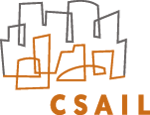Tomaso Poggio

Position: Professor
Office: 32-D424/ 46-5177
Phone:8-9501/ 3-5230
E-mail: tp@csail.mit.edu
Research Directorate(s): AI
URL: http://cbcl.mit.edu/
Biography:
Tomaso A. Poggio, Ph.D. is the Eugene McDermott Professor at the Department of Brain & Cognitive Sciences; Director, Center for Biological & Computational Learning; Member for the last 20 years of CSAIL/the Artificial Intelligence Laboratory at MIT; and, since 2000, member of the faculty of the McGovern Institute for Brain Research. His work is motivated by the belief that the problem of learning is the gateway to making intelligent machines and understanding how the brain works. Research on learning in his CBCL group of about 20 researchers, follows three basic directions: mathematics of statistical learning theory and ill-posed problems, engineering applications (in computer vision, computer graphics, bioinformatics, intelligent search engines and artificial markets) and neuroscience of learning, presently focused on the problem of how the brain learns to recognize and represent objects in higher areas of visual cortex.
Earlier Prof. Poggio had worked on the visual system of the fly with W. Reichardt in Tuebingen at the Max Planck Institut fuer Biologische Kybernetik and with D. Marr on computational analysis of human and machine vision. He was responsible for the Vision Machine project at the AI Lab. Serving on the editorial boards of a number of leading interdisciplinary journals, Professor Poggio is a Founding Fellow of the American Association for Artificial Intelligence, an Honorary Associate of the Neuroscience Research Program at Rockefeller University and a member of several scientific and engineering associations including IEEE, AAAS; he is an elected member of the American Academy of Arts and Sciences. Professor Poggio received his doctorate in theoretical physics from the University of Genoa in 1970, had a tenured research position at the Max Planck Institute from 1971 to 1981 when he became Professor at MIT. In the years since then, he has received a number of distinguished international awards in the scientific community. He is the author of hundreds of papers in areas ranging from biophysics to information processing in man and machine, artificial intelligence, machine vision and learning. A former Corporate Fellow of Thinking Machines Corporation, he was and is still peripherally involved in several companies in the areas of bioinformatics, computer graphics, computer vision, computer networks and financial engineering.
The Poggio Lab (CBCL) continues to study the problem of learning, which they believe is at the core of the problem of synthesizing intelligence in machines and understanding how the brain works. Their research effort is in three main directions: a) theory, b) engineering applications, c) computational neuroscience. In the theory domain, they have made a significant contribution which is increasingly recognized to the foundations of learning theory. Their engineering applications include bioinformatics, computer vision for recognition and trainable man-machines interfaces. In the neurosciences, they have continued to work on models of visual cortex underlying object recognition and object categorization collaborating with Miller's, Ferster's, Koch's and DiCarlo's labs in using the models as a powerful tool to analyze, interpret and plan experiments. Their funding is increasingly diversified among NSF, NIH, DARPA, ONR and private companies.
Recent and/or Significant Publications:
Ezzat, T., G. Geiger and T. Poggio. "Trainable Videoreaslistic Speech Animation" In: Proceedings of the Sixth IEEE International Conference on Automatic Face and Gesture Recognition (FGR2004, Seoul, Korea), 57-64, 2004.
Poggio, T. and S. Smale. The Mathematics of Learning: Dealing with Data, Notices of the American Mathematical Society (AMS), Vol. 50, No. 5, 537-544, 2003. (See journal issue at AMS Notices.)
Poggio, T., R. Rifkin, S. Mukherjee and P. Niyogi. "General Conditions for Predictivity in Learning Theory," Nature, 428, 419-422, March 2004.
Mukherjee, S., P. Niyogi, T. Poggio and R. Rifkin.
Hung, C.P., G. Kreiman, T. Poggio and J.J. DiCarlo.
Serre, T., M. Kouh, C. Cadieu, U. Knoblich, G. Kreiman and T. Poggio.
Serre, T., A. Oliva and T. Poggio. A Feedforward Architecture Accounts for Rapid Categorization, Proceedings of the National Academy of Sciences (PNAS), Vol. 104, No. 15, 6424-6429, 2007.
Serre, T., L. Wolf, S. Bileschi, M. Riesenhuber and T. Poggio. Object Recognition with Cortex-like Mechanisms, IEEE Transactions on Pattern Analysis and Machine Intelligence, 29, 3, 411-426, 2007.
